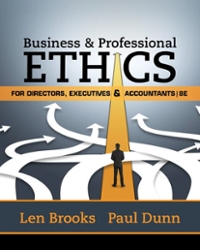Question
On September 1, Year1, Brok Co.issued a note payable to Federal Bank in the amount of $900,000, bearing interest at 12%, and payable in three
On September 1, Year1, Brok Co.issued a note payable to Federal Bank in the amount of $900,000, bearing interest at 12%, and payable in three equal annual principal payments of $300,000. On this date, the banks prime rate was 11%. The first interest and principal payment was made on September 1, Year2. At December 31, Year2, Brok should record accrued interest payable of
A.
$24,000
B.
$22,000
C.
$36,000
D.
$33,000
On January 1, Year1, Kay, Inc., issued 10% bonds in the face amount of $400,000, which mature on January 1, Year11. The bonds were issued for $354,000 to yield 12%, resulting in bond discount of $46,000. Kay uses the interest method of amortizing bond discount. Interest is payable semiannually on July 1 and January 1. At June 30, Year1, Kays unamortized bond discount should be
A.
$44,760
B.
$46,000
C.
$42,000
D.
$43,700
On July 1, Year 3, Lundy Company issued for $438,000 500 of its 8%, $1,000 bonds. The bonds were issued to yield 10%. The bonds are dated July1, Year 3, and mature on July 1, Year 13. Interest is payable semiannually on January 1 and July 1. Using the interest method, how much of the bond discount should be amortized for the 6 months ended December 31, Year 3?
A.
$2,480
B.
$1,900
C.
$3,800
D.
$3,100
The guidance for asset retirement obligations prescribes the accounting for obligations related to the retirement of long-lived tangible assets. A liability for an asset retirement obligation (ARO) within the scope of this guidance may arise solely from
A.
The acquisition, construction, development, or normal operation of a long-lived asset.
B.
The temporary idling of a long-lived asset.
C.
The improper operation of a long-lived asset.
D.
A plan to sell a long-lived asset.
A business entity acquired a long-lived tangible asset on January 1, Year 4. On that date, it recorded a liability for an asset retirement obligation (ARO) and capitalized asset retirement cost (ARC). The estimated useful life of the long-lived tangible asset is 5 years, the credit-adjusted risk-free (CARF) rate used for initial measurement of the ARO is 10%, the initial fair value of the ARO liability based on an expected present value calculation is $250,000, and no changes occur in the undiscounted estimated cash flows used to calculate that fair value. If the entity settles the ARO on December 31, Year 8, for $420,000, what is the settlement gain or loss (rounded)?
A.
$25,000
B.
$(17,372)
C.
$(152,628)
D.
$(170,000)
Step by Step Solution
There are 3 Steps involved in it
Step: 1

Get Instant Access to Expert-Tailored Solutions
See step-by-step solutions with expert insights and AI powered tools for academic success
Step: 2

Step: 3

Ace Your Homework with AI
Get the answers you need in no time with our AI-driven, step-by-step assistance
Get Started


